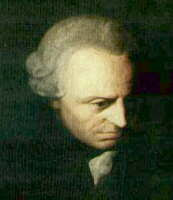"I am always doing that which I can not do, in order that I may learn how to do it."
Pablo Picasso (1881 - 1973)
Before the invention of the computer, who could have predicted the invention of the internet? Obviously, no one. And yet, without considering the impact of the internet, how could any predictions of the future have any relevance?
This is the danger of futurism. We base our predictions on current trends and current behaviors. We base our predictions on what seems impossible and the needs of the moment. For example, we know that the world energy economy MUST change. We can start to see that this change will include a broader spectrum of power generation methods. So, can we say anything about the impact of these changes? Sure, we can predict that solar power will be more prevalent in equatorial regions, and therefore ecosystems in those regions will likely be disrupted by the implementation of large scale solar farms. Can we go any further? Can we try to prepare for our own predictions? Do we get into some strange loop of constantly trying to account for the impact of our preparations for our predictions in our predictions? ouch. I just gave myself a headache.
Anyone who has tried to grasp what quantum theory means by a "collapsing probability wave" words are terrible at describing probability. We cannot talk about the future in terms of anything but likelihoods and chances. And yet, mathematical descriptions and scientific models sap the holistic nature of our world, in which there are no closed systems, nothing occuring in laboratories isolated from the world. The word Science derives from the Latin word scientia, which meant to distinguish, or separate, things from each other, and comes from the Latin word to cut. Science's power derives form delaing with one piece of something at a time. The whole point of an experiment is to isolate the cause of something. How then can we look to science for a rational, holistic approach to understanding a holistic, integrated world?
I believe that there is a new integration coming. A new form of knowledge has begun to emerge. It is a new form of class conciousness, but is more inclusive than Marx could have dreamed. It is more integrative than Hegel's Dialectic could have predicted. It is more self constructed than Piaget would have imagined. At the smae time it is concrete. It has a physical existence in space and time. It has physical and conceptual limitations, yet it contains a fractally complex collection of knowledge and processing power.
You are looking at it right now.
The internet behaves for humanity like a giant neural network. Each site acts like a neuron, or cluste rof neurons, pasisng on its charge and occasionally firing off. Collectively we have wired together the parallel processing power of humanity. We are not finished. There are many areas where our system does not reach. There are places where our collective neurons are tangled together to create innefectual neurotic communities obsessed with meanignless ideas. And yet, how is that different from the twisted biological wiring that produces human thought?
A new global entity has emerged, and it is more like our minds than we can directly percieve. You might ask, so, if the internet is so smart, why don't we see it's intelligence? why don't we see it speaking and talking independently? The simple answer is: We are too small. Can your neurons percieve your thoughts about breakfast? We are the medium of thought, and not it's masters.
I take great comfort in the hope that we evolved the internet at a time when we are facing our first extinction levle events. What did we do about Mutually Assured Destruction? It is beyond any individual human's ability to understand how to address the problems of the world. Perhaps by chance, perhaps by unconcious will or collective design, we have developed the perfect tool to address this problem. A larger consciousness. So now the question is, if we are all participating in this larger conciousness, whose ideas are too broad for us to individually comprehend, how can we take practical action to improve its functioning?

No comments:
Post a Comment